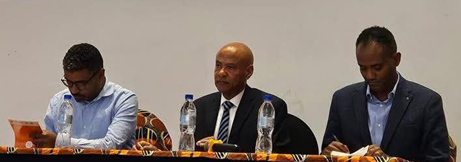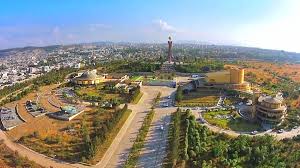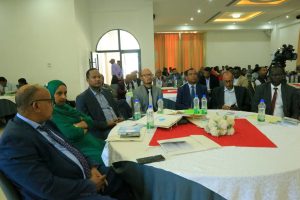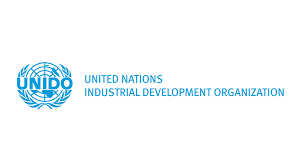
ADDIS ABABA – Young Lives Ethiopia has suggested targeted policies to address malnutrition, inequalities, and conflict to improve human capital and enable the nation to achieve sustainable development.
The organization held the 7th round workshop yesterday on its Longitudinal Study, which covers five states such as Amhara, Oromia, SNNP, Tigray, and Addis Ababa.
Presenting papers at the event regarding a survey conducted in Ethiopia between 2023 and 2024, Young Lives Ethiopia Principal Investigator Prof. Tassew Woldehanna stated that the number of households under Young Lives’ studies that are food insecure has remained persistently high over the last decade.
Moreover, he noted that prolonged school and university closures, along with disruptions caused by conflict, are associated with worsened education outcomes.
According to Tassew, the study also found that the overall level of underweight participants remains alarmingly high in Ethiopia, despite an overall decrease over time.
Regarding the potential impact of conflict, participants originally from the Amhara and Tigray states reported worse nutrition, food security, and mental health. Therefore, he emphasized the need for urgent assistance in these states while suggesting that targeted policies are required to address structural inequalities faced by women and to make progress towards SDG 5.
Young Lives Ethiopia Country Director Alula Pankhurst (PhD) stated that in the 6th round of the study, Young Lives Ethiopia will mainly focus on qualitative approaches in the areas of maternal and child health, sexual and reproductive health, mental health, and disability.
Despite some improvements, challenges remain in tertiary education, mental health, nutrition, and unemployment. Therefore, Young Lives will focus on identifying the main reasons behind the persistent nature of these challenges over time, he indicated.
On the occasion, PSI Director General Fekadu Tsega highlighted that Young Lives’ studies hold a unique and invaluable place in Ethiopia’s research landscape and globally.
He noted that its strength lies in its longitudinal study and commitment to following the lives of thousands of Ethiopian children for more than a decade.
“This sustained engagement provides us with an unparalleled depth of understanding into the complex realities of growing up in Ethiopia. It allows us to track trajectories, understand transitions, and identify the critical factors that shape opportunities and challenges from early childhood through adolescence and into young adulthood,” Fekadu said.
PSI strives to provide insights that are relevant, timely, and actionable, supporting the country’s journey towards sustainable development and improved well-being for all citizens, he added.
“In this context, high-quality, long-term data like those produced by Young Lives are not just helpful, they are essential.”
Such data allow for a better grasp of the dynamics of poverty, pathways of deprivation, and the intergenerational transmission of advantages and disadvantages resulting from various policy interventions over time, according to the Director General.
Evidence gathered by Young Lives on education, health, nutrition, and economic activity contributes directly to national priorities, including the goals outlined in the country’s development plans and its commitment to sustainable development, Fekadu said.
“We recognize that such ambitious undertakings are only possible through strong partnerships,” he added.
BY YOHANES JEMANEH
THE ETHIOPIAN HERALD THURSDAY 3 APRIL 2025





